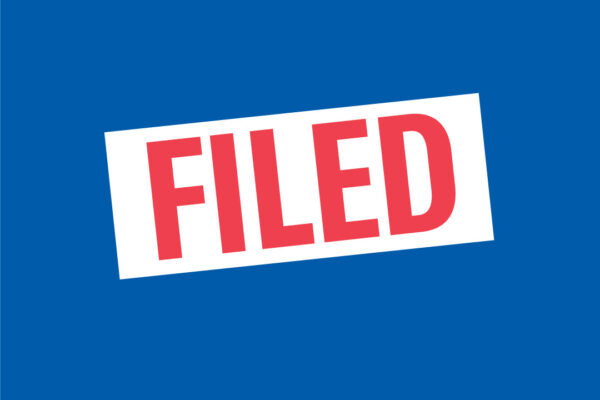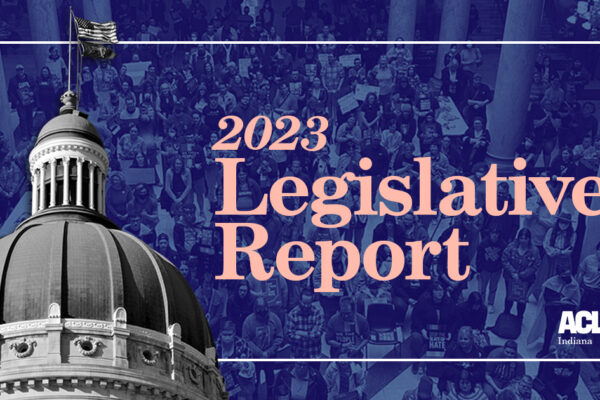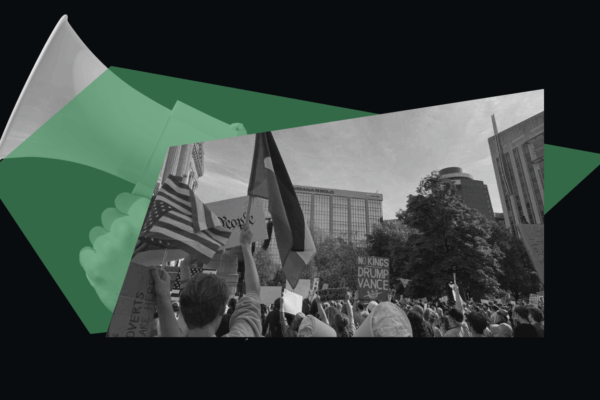At a time when the public is increasingly demanding police accountability and transparency, Indiana legislators have moved to criminalize the public’s most effective tool for shining a light on police misconduct — the right to record the police. A newly enacted Indiana law makes it a crime for a person to approach within 25 feet of a police officer if the officer has ordered them to stop.
This law is an overt attempt to gut First Amendment protections for observing and recording police activity, which is why we’re suing to challenge the new law.
The overbroad nature of this law has already made it subject to abuse and misinterpretation. In a video recorded by our lawsuit’s plaintiff, South Bend police are seen enforcing the new law to prevent our client, a citizen journalist, from getting close enough to observe and record police activities.
Indiana’s 25-feet encroachment law is part of a troubling new trend of states introducing and passing bills aimed at shielding officers from the public filming them. Yet, the First Amendment clearly protects citizens’ right to record police engaged in official duties. That’s why this right has been upheld by every federal court that’s considered it. In Arizona, a new law was recently struck down in court that would have made it illegal for people to record videos within eight feet of police activity.
While Indiana’s new law does not explicitly bar people from filming officers, the law essentially gives police unchecked authority to prohibit citizens from observing their actions, even if the citizens are not interfering with the police — clearly threatening Hoosiers’ free speech rights.
One of the best tools available to hold law enforcement accountable is a video camera. The right of citizens to record the police is a critical check and balance for exposing wrongdoing or systemic abuse. Bystander video creates an independent record of what took place in a particular incident, free from accusations of bias, lying, or faulty memory.
Recent years have demonstrated that these recordings can profoundly affect the public’s understanding of policing in America. Some of the most high-profile cases of police misconduct have involved video and audio records, and it is no accident that the ability to capture such recordings is now under attack. From Eric Garner to Philando Castile and Sandra Bland, time and time again, people’s recordings of interactions with officers have ignited national movements for police reform and accountability.
Look no further than the murder of George Floyd to see why this vital right must be protected. The video of his murder was captured by a witness at the scene and helped spark international calls for a transformation of policing. The video was also key evidence in the trials of the officers involved in the murder.
Because people of color are over-policed and disproportionately targeted by law enforcement, the ability to record, livestream, and share police encounters is an especially critical tool for marginalized communities as it often serves as the only “proof” that violence from law enforcement has occurred — violence that is all too often lethal.
In order for this important right to have real meaning, we must ensure that people can exercise it safely and effectively. Indiana’s 25-feet encroachment law grants police too much discretion and vests far too much power in individual officers to stop someone from recording them if they don’t want to be recorded.
Put simply, Indiana's new law is a violation of a critical constitutional right and will thwart attempts to build police accountability.
The ACLU of Indiana has fought—and will keep fighting—for police accountability and to ensure that the right to film and photograph the police is respected by law enforcement officers.




